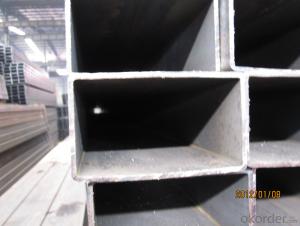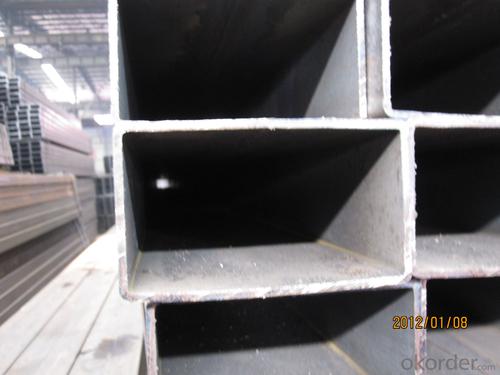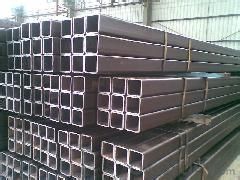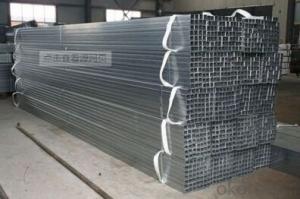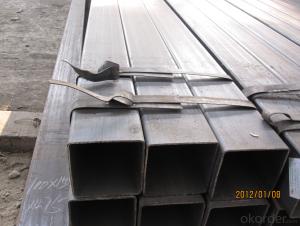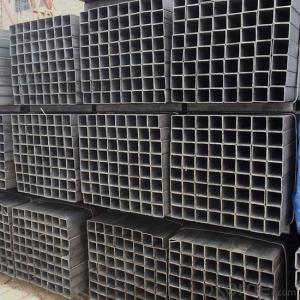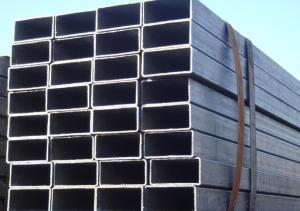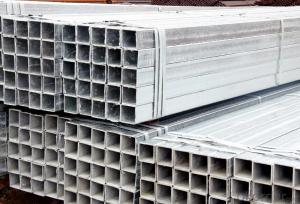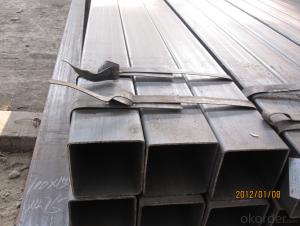Rectangular Hot Rolled Steel Tube
- Loading Port:
- China Main Port
- Payment Terms:
- TT or LC
- Min Order Qty:
- -
- Supply Capability:
- -
OKorder Service Pledge
OKorder Financial Service
You Might Also Like
Quick Details
| Thickness: | 1.0 - 35 mm | Section Shape: | Square | Outer Diameter: | 20*20-600*600 |
| Place of Origin: | Shandong China (Mainland) | Secondary Or Not: | Non-secondary | Application: | Structure Pipe |
| Technique: | Cold Rolled | Certification: | CE | Surface Treatment: | oil,paint |
| Special Pipe: | Thick Wall Pipe | Alloy Or Not: | Non-alloy | Name: | Square Hollow Steel Pipe/Tube |
| Shape: | Square/Rectangular | Yield Strength: | 360-380Mpa | Tensile Strength: | 560-580Mpa |
| Elongation: | 24-28% | Bend Test: | Qualified | Impact Value: | V-notch |
| Grade: | 20#,45#,16Mn,A210,St45,Q235,Q345,Q195,Q215,10#-45#,A53-A369,ST35-ST52,Q195-Q345 | Standard: | JIS G3465-2006,JIS G3466,GB/T 3094 |
Specifications
OD:15X15-800X800MM,20X30--600X800MM
Thick.:1.0--35.0MM
Rectangular Hot Rolled Steel Tube Image
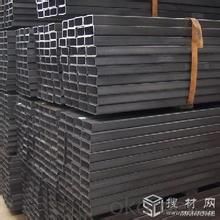
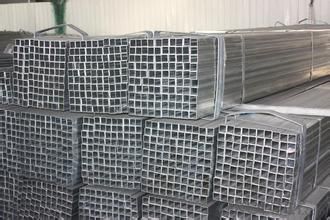
FAQ of Rectangular Steel Tube
①How is the quality of your products?
Our products are manufactured strictly according to national and internaional standard, and we take a test
on every pipe before delivered out. If you want see our quality certifications and all kinds of testing report, please just ask us for it.
Guaranteed: If products’ quality don’t accord to discription as we give or the promise before you place order, we promise 100% refund.
②How about price?
Yes, we are factory and be able to give you lowest price below market one, and we have a policy that “ for saving time and absolutely honest business attitude, we quote as lowest as possible for any customer, and discount can be given according to quantity”,if you like bargain and factory price is not low enough as you think, just don’t waste your time.Please trust the quotation we would give you, it is professional one.
③Why should you chose us?
Chose happens because of quality, then price, We can give you both.Additionally, we can also offer professional products inquiry, products knowledge train(for agents), smooth goods delivery, exellent customer solution proposals.Our service formula: good quality+good price+good service=customer’s trust
SGS test is available, customer inspection before shipping is welcome, third party inspection is no problem.
If you have any question, pls feel free to contact us !
- Q: How are steel pipes used in the automotive manufacturing industry?
- Steel pipes are commonly used in the automotive manufacturing industry for various applications such as exhaust systems, fuel lines, and structural components. They provide durability, strength, and resistance to heat and corrosion, making them ideal for withstanding the harsh conditions of vehicles.
- Q: Is steel pipe made of profiles?
- According to the shape of the cross-section, the steel is generally divided into profiles, plates, pipes and metal products in four categories.Therefore, the steel pipe belongs to the pipe, not the profile.
- Q: How do steel pipes handle water erosion?
- Steel pipes are highly resistant to water erosion due to their robust and durable nature. The smooth surface of steel pipes minimizes the formation of rust and corrosion, preventing water erosion from occurring. Additionally, steel pipes can withstand high water pressure and turbulent flow, further enhancing their ability to handle water erosion effectively.
- Q: How are steel pipes connected together?
- Steel pipes are typically connected together through various methods such as welding, threading, and flanging. Welding involves fusing the ends of pipes together using high heat, creating a strong and permanent connection. Threading involves screwing the ends of pipes together using threads, while flanging involves connecting pipes by flaring or bending their ends and securing them with bolts. These methods ensure a secure and reliable connection between steel pipes.
- Q: What's the difference between stainless steel seamless tube and stainless steel welded pipe?
- Stainless steel seamless pipe featuresFirst, the product of the wall is thicker, it is more economical and practical, the wall thickness of the thinner, processing costs will be substantially increased it; secondly, the product process to determine its performance limitations, generally low precision seamless steel pipe: uneven thickness, tube inner surface brightness low and high cost of fixed length, and the inner surface pitting and black spots difficult to remove; the detection and plastic third, must be processed offline. Therefore, it has its advantages in high pressure, high strength, mechanical structure and timber.
- Q: Can steel pipes be used for underground geothermal systems?
- Yes, steel pipes can be used for underground geothermal systems. Steel pipes are commonly used in geothermal applications due to their durability, strength, and resistance to corrosion. They can withstand high temperatures and pressures associated with geothermal systems, making them suitable for underground installations. Additionally, steel pipes are readily available and cost-effective, making them a popular choice in geothermal projects.
- Q: Can steel pipes be used for underground oil and gas pipelines?
- Yes, steel pipes can be used for underground oil and gas pipelines. Steel is a widely used material in the oil and gas industry due to its strength, durability, and resistance to corrosion. Steel pipes are capable of withstanding the high pressure and extreme conditions often encountered in underground pipelines, making them a reliable choice for transporting oil and gas.
- Q: Can steel pipes be used for chemical processing plants?
- Yes, steel pipes can be used for chemical processing plants. Steel pipes are commonly used in chemical processing plants due to their high strength, durability, and resistance to corrosion. They can effectively handle the high temperatures, pressures, and corrosive chemicals involved in various chemical processes. Additionally, steel pipes can be easily welded and connected, making them suitable for complex piping systems within chemical plants.
- Q: What are the different types of steel pipe supports for offshore platforms?
- There are several types of steel pipe supports commonly used for offshore platforms, including but not limited to: 1. Clamps: These are used to secure and fasten pipes to the support structure, providing stability and preventing movement. 2. Hangers: These are used to suspend pipes from the support structure, allowing for flexibility and reducing stress on the pipes. 3. Guides: These are installed to control the movement and alignment of pipes, ensuring they stay in place and prevent damage during operation. 4. Shoes: These are used to support and distribute the weight of the pipe, typically at points where the pipe intersects with the support structure. 5. Saddles: These are designed to cradle the pipe and provide support, typically used for horizontal or inclined pipes. Each type of steel pipe support serves a specific purpose in ensuring the integrity and functionality of the offshore platform's piping system.
- Q: What are the different types of steel pipe coatings for chemical processing plants?
- There are several types of steel pipe coatings commonly used in chemical processing plants, including epoxy coatings, polyethylene coatings, and fusion-bonded epoxy coatings. These coatings provide protection against corrosion and chemical damage, ensuring the longevity and safety of the pipes in such environments.
Send your message to us
Rectangular Hot Rolled Steel Tube
- Loading Port:
- China Main Port
- Payment Terms:
- TT or LC
- Min Order Qty:
- -
- Supply Capability:
- -
OKorder Service Pledge
OKorder Financial Service
Similar products
Hot products
Hot Searches
Related keywords
